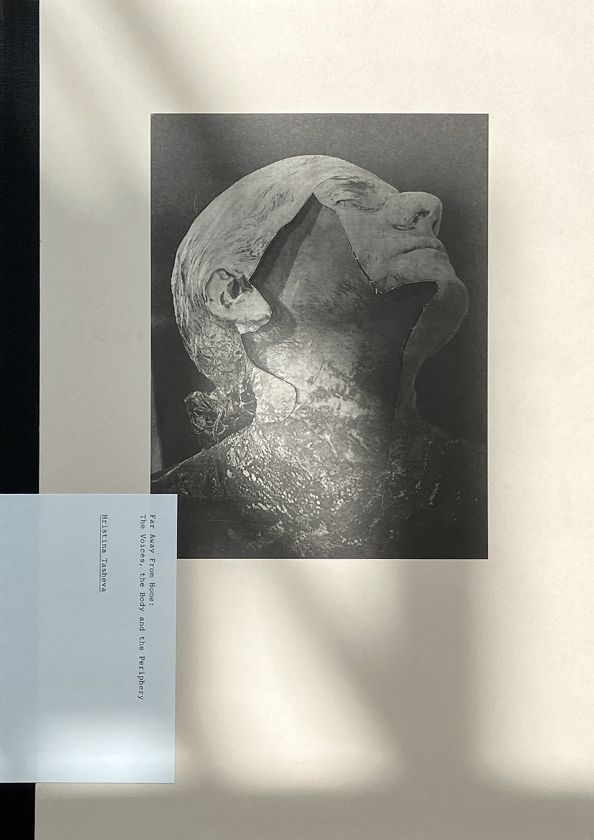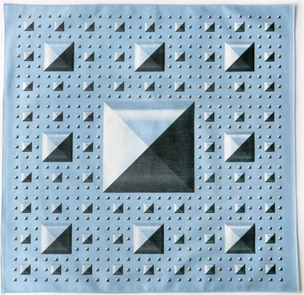Ideas around place and identity have never been unequivocal for Anu Kumar. When the young Melbourne-based photographer returned to to her birthplace of Kavi Nagar, India, for the first time since childhood at age twenty-one, she felt at sea. “I remember a feeling of discomfort, of not knowing my place or who I was in that context,” she says. “I began taking photos as an exercise in learning how to be Indian.”
The term Ghar, meaning ‘home’ in Hindi, doubles as the title of this, her debut book, and the broader outcome of her pursuit – one that is as much a new beginning as it is a homecoming. Shooting over a period of five years on a medium format camera, Kumar’s soft gaze meanders between the rooms and courtyards of the family home in Kavi Nagar, and out onto the neighbouring streets, sketching out the symbolic and aesthetic markers of a personal and cultural heritage. Formal portraits of her grandmother, aunts and uncles, echoing the traditional family album, give way to intimate scenes of daily tasks and quiet idleness – a thorough visual record to preserve intergenerational gestures and familial rituals that may otherwise linger in the undocumented everyday.
Kumar’s search for familial closeness was suddenly given a new sense of universality when the COVID-19 pandemic closed Australia’s international borders for almost two years. Edited and sequenced during this period, Ghar also speaks to the enforced distance experienced by cross-cultural families, and the role of photographs as vessels for intimacy and connection. The series contemplates ‘home’ in all its multiplicities. A place, a sentiment, a responsibility; something at once inherently familiar and other times distant and incongruous. -Publisher





















































![Protect Me From What I Want Wooden Postcard [Gold Text]](https://d23eqwv5slm408.cloudfront.net/api/file/1rE09CiPQpGMa3jDySHP/convert?fit=max&h=480&w=304&compress=true&fit=max)
![Words Tend To Be Inadequate Wooden Postcard [Gold Text]](https://d23eqwv5slm408.cloudfront.net/api/file/HhtS8vASTpWSUA41En0s/convert?fit=max&h=480&w=304&compress=true&fit=max)


![All Things are Delicately Interconnected Wooden Postcard [Gold Text]](https://d23eqwv5slm408.cloudfront.net/api/file/muHR6MdRL6EgJe6ATC1m/convert?fit=max&h=480&w=304&compress=true&fit=max)



![Protect Me From What I Want Wooden Postcard [Red Text]](https://d23eqwv5slm408.cloudfront.net/api/file/xKZZfpWNQRChHZkrFntw/convert?fit=max&h=480&w=304&compress=true&fit=max)
![All Things are Delicately Interconnected Wooden Postcard [Silver Text]](https://d23eqwv5slm408.cloudfront.net/api/file/Omkx9rurTfKoRgqObG5L/convert?fit=max&h=480&w=304&compress=true&fit=max)

![All Things Are Delicately Interconnected Wooden Postcard [Red Text]](https://d23eqwv5slm408.cloudfront.net/api/file/C6N6ppL6SnKYeXJuCtbd/convert?fit=max&h=480&w=304&compress=true&fit=max)









![In a Dream You Saw a Way to Survive and You Were Full of Joy Wooden Postcard [Black Text]](https://d23eqwv5slm408.cloudfront.net/api/file/WEd4Y05lROcLsySIoRfJ/convert?fit=max&h=480&w=304&compress=true&fit=max)
![Lack of Charisma Can Be Fatal Wooden Postcard [Red Text]](https://d23eqwv5slm408.cloudfront.net/api/file/KMt0MXg2QV6BBtFafHlT/convert?fit=max&h=480&w=304&compress=true&fit=max)
![Thee Almighty & Insane: Chicago Gang Business Cards from the 1970s & 1980s [Third Edition]](https://d23eqwv5slm408.cloudfront.net/api/file/LkZ8Y1wnSQNAHOeIsZ2Q/convert?fit=max&h=480&w=304&compress=true&fit=max)
![The Breakdown Comes When You Stop Controlling Yourself and Want the Release of a Bloodbath Wooden Postcard [Black Text]](https://d23eqwv5slm408.cloudfront.net/api/file/Yq72qCUcTzenjZPmDHHH/convert?fit=max&h=480&w=304&compress=true&fit=max)
![Raise Boys and Girls the Same Way Wooden Postcard [Red Text]](https://d23eqwv5slm408.cloudfront.net/api/file/uV8m1BsaQ6OCflSE578g/convert?fit=max&h=480&w=304&compress=true&fit=max)
![Money Creates Taste Wooden Postcard [Black Text]](https://d23eqwv5slm408.cloudfront.net/api/file/FDyWtNrERsKaawMR4dY8/convert?fit=max&h=480&w=304&compress=true&fit=max)